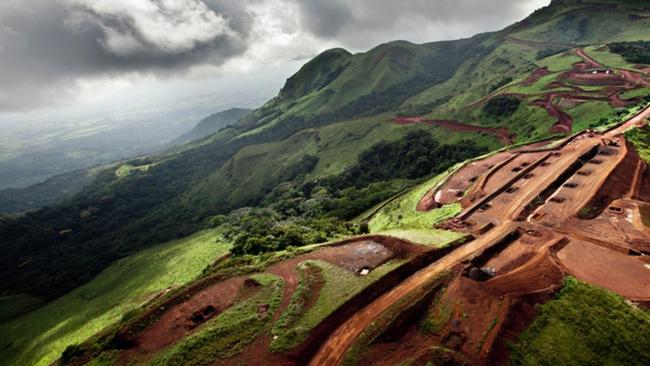Guinean coup casts doubt on aluminium, iron ore production
Australian bauxite exports could benefit from Guinea’s coup but doubts grow on Rio’s Simandou iron ore project.

Traders and analysts are assessing the impact on aluminium and iron ore markets from a military coup in the mineral-rich nation of Guinea.
Guinean soldiers said on Sunday that they had suspended the constitution and detained the president. The West African state is a major global supplier of bauxite - crucial for the manufacture of aluminium - and iron ore.
Aluminium prices jumped in early trading as markets factored in risks to the distribution of bauxite supplies. Three-month aluminium forward contracts on the London Metal Exchange rose 0.8 per cent to $US2754 a tonne, hitting a fresh ten-year high.
Guinea exported 82.4 million tonnes of bauxite in 2020, making it the world’s largest exporter, according to brokerage Marex. Almost all bauxite is used to make alumina, which itself is used primarily to make aluminium.
The nation’s army has announced the closure of both land and air borders, threatening to snarl the global bauxite supply chain, said John Meyer, mining analyst at SP Angel, in a note to clients.
“Guinea’s coup is expected to add further supply pressures to the aluminium market, although new Chinese supply in the pipeline is anticipated to soften prices,” he added.
The coup will be of key concern to Chinese aluminium makers. China is the main destination for Guinea’s bauxite while Chinese companies have been crucial to developing the nation’s bauxite reserves, said Vivek Dhar, director of mining and energy commodities research at Commonwealth Bank of Australia, in a note to clients. Guinea accounts for more than half of China’s bauxite imports, he said.
Australian bauxite miners could stand to benefit, however. Australia and Guinea compete for Chinese bauxite imports, and Australian companies could step in if Guinea’s supplies are disrupted, said Mr Dhar.
“If the political instability in Guinea disrupts its bauxite exports, we expect bauxite prices to lift. Australia stands to benefit the most given its position as the world’s second-largest bauxite exporter,” he said.
Aluminium and bauxite producers have seen share prices rise in the wake of the coup. Russia’s United Rusal rose more than 14 per cent in Hong Kong, while Aluminium Corporation of China rose more than 5 per cent. Australian bauxite miner South32 rose 2.1 per cent in Sydney.
Meanwhile the outlook for Simandou, an iron ore development in Guinea part owned by Rio Tinto, also looks cloudy after the coup, said Mr Dhar. The project is expected to be able to produce 150 million tonnes a year when at full capacity, but it has been dogged by legal wrangling and corruption allegations.
“Funding was already challenging though given the weak economic rationale to build the project. However, funding will prove even more challenging in the face of political instability,” said Mr Dhar.
Wall Street Journal
